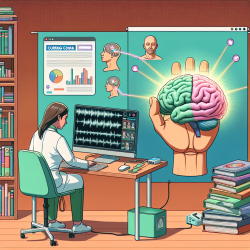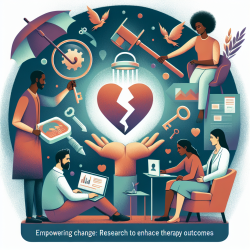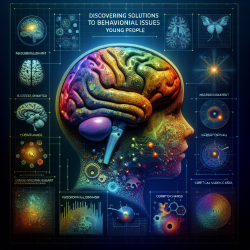The digital age has transformed how young people access mental health support. The research paper "A Theory of Change for Web-Based Therapy and Support Services for Children and Young People: Collaborative Qualitative Exploration" sheds light on how web-based therapy can effectively support the mental health and well-being of children and young people (CYP). Here are some key takeaways for practitioners looking to enhance their skills and better serve this demographic.
Understanding the Theory of Change (ToC)
The Theory of Change (ToC) developed for Kooth, a web-based therapy platform, outlines the conditions, modes of delivery, and outcomes that lead to effective mental health support for CYP. This ToC is divided into three main areas:
- Conditions that prompt individuals to seek web-based therapy.
- Modes of service delivery, including the roles of skilled professionals and flexible access platforms.
- Observed and reported changes as a result of using the service.
Conditions for Seeking Web-Based Therapy
Young people often turn to web-based therapy when they need immediate support, lack a reliable support system, or prefer the anonymity and flexibility of online communication. Understanding these conditions can help practitioners tailor their approach to meet the unique needs of their clients.
Modes of Delivery
The ToC emphasizes the importance of skilled professionals who can build empathetic relationships and provide tailored responses. Key activities include:
- Building empathetic relationships.
- Assessing distress and risk.
- Providing information and signposting.
- Cocreating goals and solutions.
Observed Changes
The research highlights several positive outcomes from web-based therapy, including improved self-awareness, emotional regulation, and a sense of community. These changes help young people better manage current and future situations, demonstrating the long-term benefits of online support.
Practical Implications for Practitioners
Practitioners should consider the following when implementing web-based therapy:
- Be prepared to offer a variety of resources, including informational and emotional support.
- Understand that web-based therapy requires different skills than face-to-face interactions.
- Develop bespoke tools to measure outcomes effectively.
Future Research
Further research is needed to explore the complexities of web-based therapy, including how to manage risky behaviors and the impact of disinhibition in online communication. Additionally, a more holistic evaluation of virtual ecosystems can provide a fuller understanding of the services offered.
For a deeper dive into this research, A Theory of Change for Web-Based Therapy and Support Services for Children and Young People: Collaborative Qualitative Exploration.










